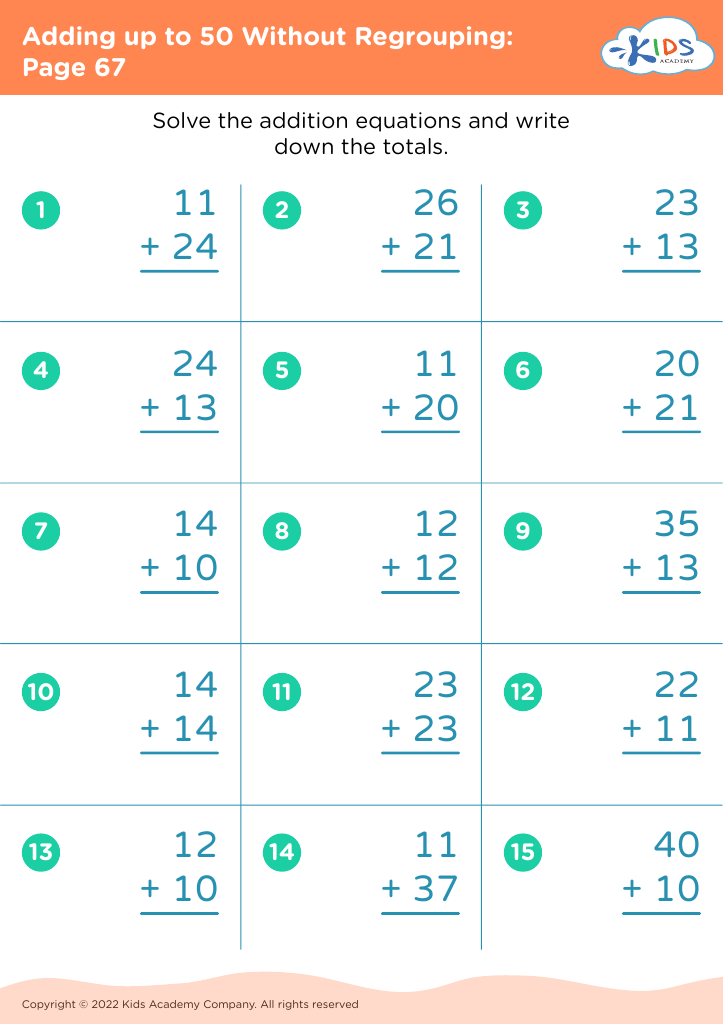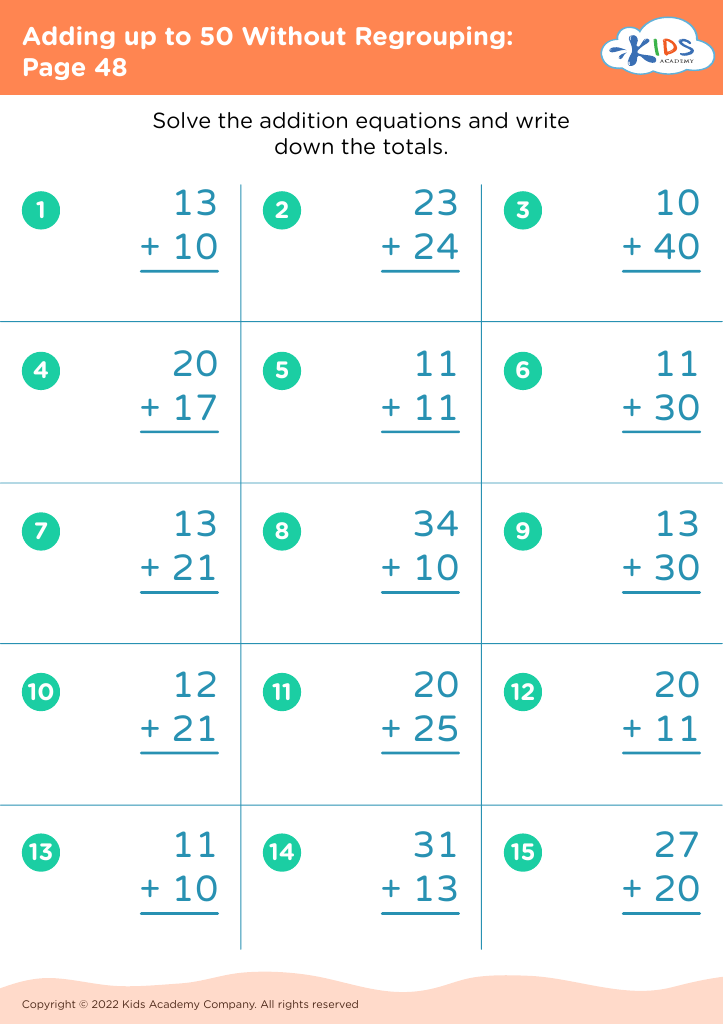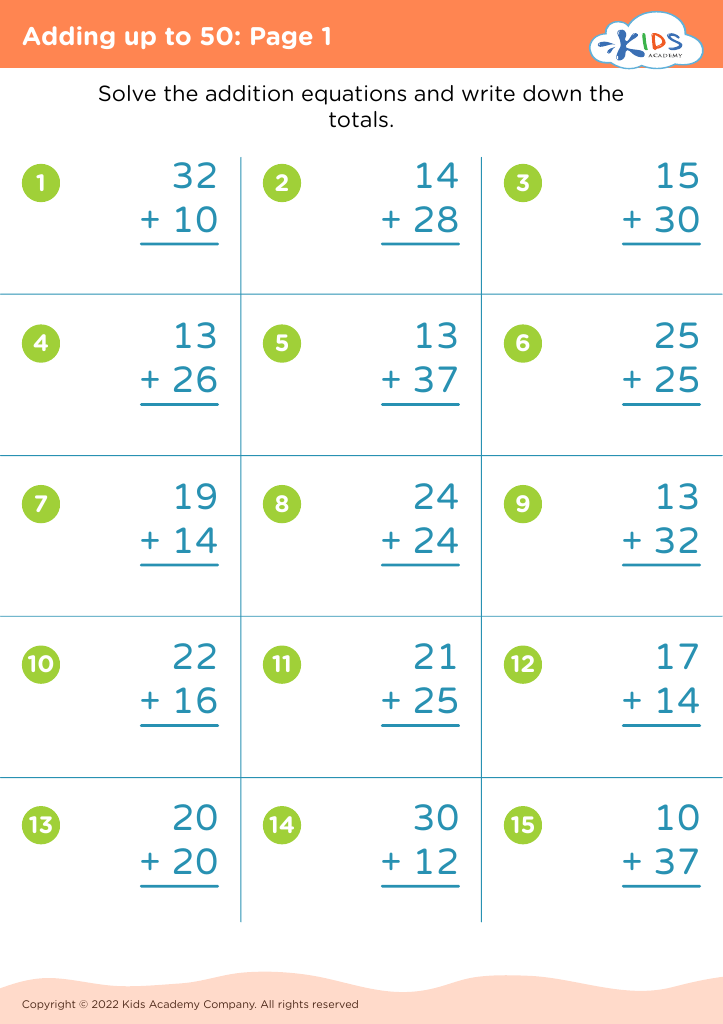Basic Addition Adding up to 50 Worksheets for Ages 7-8
7 filtered results
-
From - To
Discover our engaging 'Basic Addition Adding up to 50 Worksheets for Ages 7-8', designed to enhance your child's math skills. Perfect for first and second graders, these worksheets provide a variety of fun, interactive exercises that help young learners master addition within 50. Each worksheet features colorful illustrations and straightforward problems, making learning enjoyable and effective. With a strong focus on fundamental math concepts, these resources support both classroom and at-home learning, ensuring that children build a solid arithmetic foundation. Equip your students with the tools they need to succeed in math with our expertly crafted worksheets!
Foundational arithmetic skills, particularly basic addition up to 50, are crucial for children aged 7-8 as they form the bedrock of numeracy. At this age, students transition from simple counting to more complex mathematical concepts. Proficiency in addition cultivates number sense, enabling kids to easily grasp patterns, understand the relations between numbers, and develop logical thinking skills.
Parents and teachers who emphasize basic addition are helping to build confidence in young learners. When children quickly master simple sums, they are more likely to engage positively with more challenging arithmetic tasks, laying a robust foundation for future academic achievement in subjects such as algebra, geometry, and beyond.
Moreover, addition is not just restricted to the classroom; it is a vital life skill used in everyday activities such as shopping, cooking, and time management. Teaching children reliable methods to handle addition encourages problem-solving abilities and critical thinking, which are applicable in various real-life situations.
Furthermore, consistent practice with addition aids in memory retention and cognitive development, supporting overall mental agility. By giving due importance to mastering basic addition, parents and teachers play a pivotal role in fostering a generation of mathematically proficient individuals who are equipped with essential tools for lifelong learning and success.






















